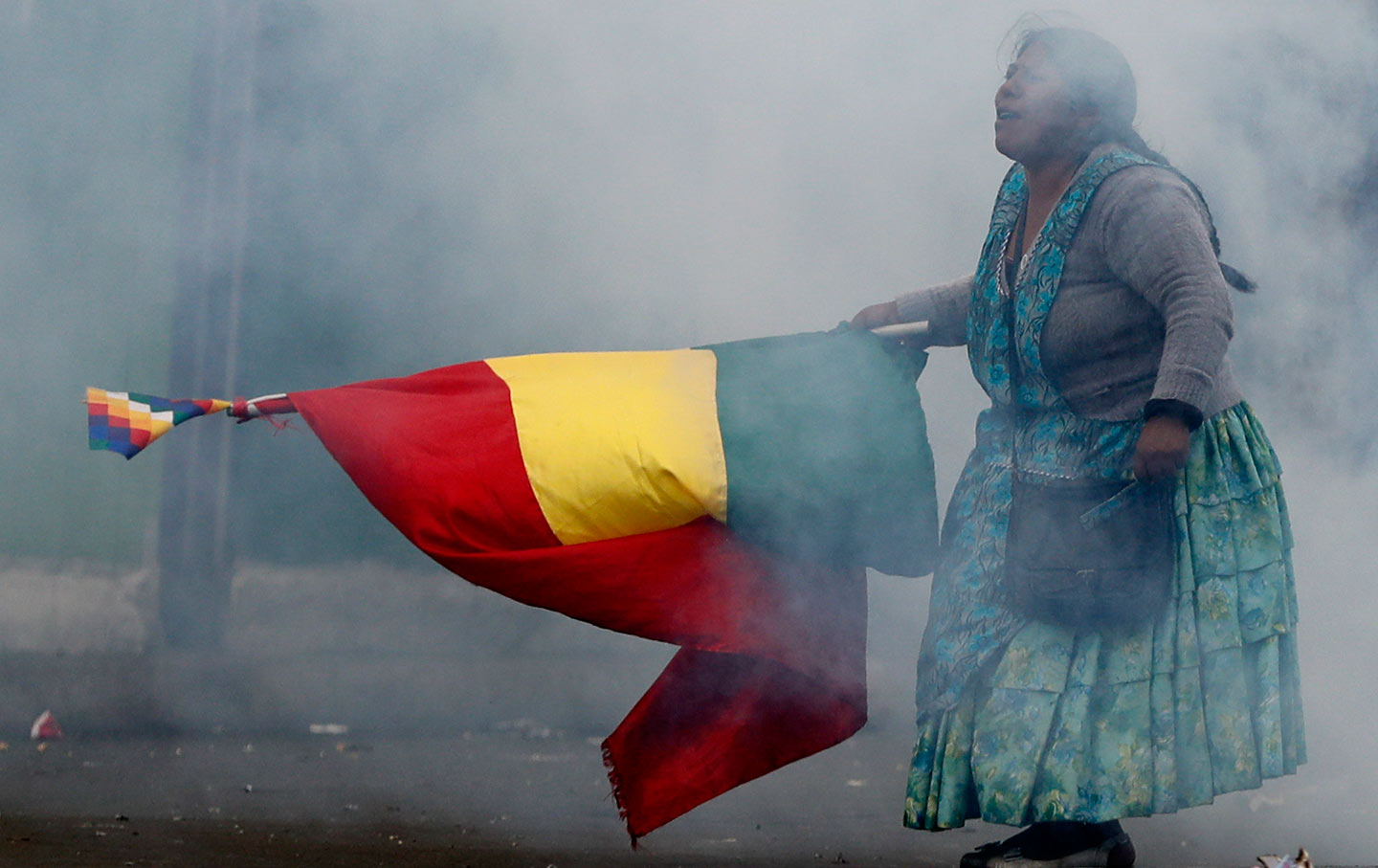
A supporter of former president Evo Morales holds a Bolivian flag during clashes with police in La Paz, Bolivia, on November 13, 2019.(Natacha Pisarenko / AP Photo)
The House of Representatives voted on Wednesday night to approve a measure directing the State Department to investigate the Washington-based Organization of American States (OAS) and its role facilitating the coup against Bolivia’s three-term President Evo Morales in 2019. The provision, which was tucked into the $67 billion State Department and foreign operations spending package, instructs the State Department to gather information regarding the OAS’s unfounded claims of election fraud. The OAS’s accusations, and the US media’s rushing in to parrot these falsehoods, led to the expulsion of Bolivia’s popular left-wing president, and put the country in the hands of an unelected military junta. Jeanine Áñez, who declared herself the “interim” president after Morales was ousted, oversaw the massacres of Indigenous protesters and other human rights violations during her year in power.
“Since the day after the 2019 Bolivian elections, the OAS has helped direct a false narrative that the incumbent president, Evo Morales, and his party ‘rigged’ the election,” Illinois Democratic Representative Jan Schakowsky told The Nation in a statement. “This narrative contributed to political polarization, a military coup, and violent political repression in Bolivia as well as uncertainty for the democracy’s future.”
“The language included in the SFOPs Appropriations bill would help us finally see accountability and transparency from OAS, and ensure that it carries out its mission independently and impartially,” Schakowsky continued. “I look forward to continuing our work to make sure this language makes it into law.”
The language tells the State Department to collect testimony from “independent, internationally recognized experts” regarding the legitimacy of the 2019 Bolivia general elections, the OAS’s role, and the investigations into the political and human rights violations that occurred at the time, and to then present it to the members of Congress who have been asking for it. Democratic Representatives Susan Wild and Schakowsky led the push to include the measure in the appropriations bill, but they were building on a broader Democratic effort to examine the organization’s destructive influence in the region.
Lawmakers, including Democratic Representatives Hank Johnson, Chuy García, and Bobby Rush, have been pushing the OAS for answers, making repeated attempts to get basic information from the organization—with little success. In November 2019, lawmakers wrote to the OAS with a list of questions about its statements and initial analysis but never heard back. “Did the [Electoral Observation Mission] consider the potential effect on political violence of stability of putting forth what appears to be a hypothesis of fraud, without any evidence?” they asked.
Mark Weisbrot, codirector of the Center for Economic and Policy Research and a frequent Nation contributor, said that the House’s passage of the language is “really important” for holding the OAS and Secretary General Luis Almagro accountable for their “major, decisive role” in bringing about the coup. “Members of the US Congress can hold them accountable because they control the majority of OAS funding,” Weisbrot told The Nation in an e-mail. “We can’t have an organization that represents a billion people in this hemisphere using its power and influence to overturn democratic election results.”
Aída ChávezTwitterAída Chávez is communications director and policy adviser at Just Foreign Policy. She was previously The Nation’s D.C. correspondent and a reporter at The Intercept, More Perfect Union, and other outlets.